

Transforming the Global Economy

Transforming the Health Sector

Transforming laws, policies and key markets - Climate energy, Chemicals, Waste, Plastics etc.
By harnessing its tremendous purchasing power in many countries, the health sector can impact the supply chain, compelling manufacturers and suppliers to provide safer, more environmentally sustainable products, produced under ethical and healthy working conditions.
The health systems can also manage health care waste disposal in an environmentally sustainable way by considering the whole product life cycle. Ultimately, the health sector can help shift the markets so that the health commodities—as well as thousands of related products—are more widely available, not only to hospitals, but to all consumers, helping achieve the Sustainable Development Goals by promoting greater health, environmental and social sustainability.
Eastern Europe and Central Asia: Moldova and Ukraine, Africa: South Africa, Tanzania and Zambia, Asia: China, India, Viet Nam, Latin America: Argentina, Brazil with scale-up in Latin America and the Caribbean and Southeast Asia. Out of the 10 focus countries, Argentina, Moldova, Tanzania, Ukraine, Vietnam and Zambia are managed by UNDP while the rest are under HCWH.
Four years, 2018-2021.
Promote sustainability in the health sector supply chain to improve human health and reduce greenhouse gases, resource depletion, and chemical pollution in developing countries.
Strengthen sustainable procurement in the UN system and in strategic countries to leverage purchasing power and drive policy and market demand for sustainable manufacturing and waste management in the health sector.

Sustainability in the health sector is the capability to equitably meet essential human needs of the present without compromising the ability of future generations to meet their own needs by preserving and protecting the ecosystems and natural resources.
for sustainable production, distribution and content of product produced by the health sector
Strenghten capacity and demand for sustainable procurement in the health sector
Strenghten capacity and demand for sustainable production, supply and disposal of health care products
Strenghten understanding and application of appropriate indicators and monitoring and evaluation processes that help promote accountability for sustainable procurement in the sealth sector
The health sector, whose mandate is to prevent and cure disease, makes a major contribution to the global climate crisis.
In fact, if the global health sector were a country, it would be the fifth-largest greenhouse gas emitter on the planet. The health sector purchases a broad array of products including chemicals, electronics, plastics, medical devices, energy generation technologies, laboratory reagents, anaesthetic gases, pharmaceuticals and food. The production, packaging, transportation, use and disposal of these products has a significant impact on the health of people and the environment.
Health programmes, policymaking, and research are needed in order to change course.


Roughly a quarter of all human diseases and death on the planet can be attributed to what the WHO broadly defines as environmental factors. These include unsafe drinking water, poor sanitation and hygiene, indoor and outdoor air pollution, workplace hazards, industrial accidents, automobile accidents, climate change, poor land use practices and natural resource management. For children, the rate of environmentally caused deaths is as high as 36 percent. Environmental health factors play a significantly larger role in developing countries, where poor water quality and the lack of sanitation, along with indoor and outdoor air pollution make major contributions to mortality.
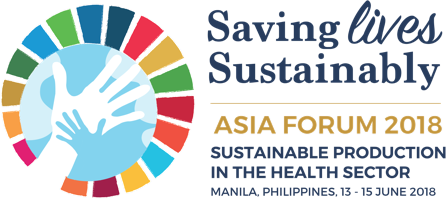
The 1st Saving Lives Sustainably: Asia Forum 2018 provided an invaluable opportunity for building capacity and galvanising action on sustainable production in the health sector, bringing together stakeholders from around the world to exchange knowledge, share experiences, identify good practices, and agree upon the way forward.
Learn more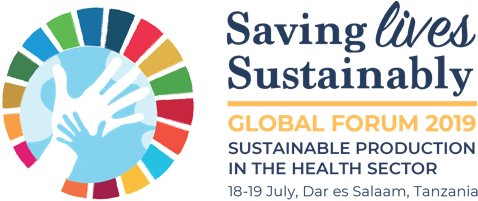
The 2nd Saving Lives Sustainably: Africa Forum 2019 and 3rd MSD Suppliers-Manufacturers Annual Meeting was held on 18-19 July in Dar es Salaam, Tanzania. The Forum was organised by UNDP and Medical Stores Department (MSD) Tanzania.
Learn more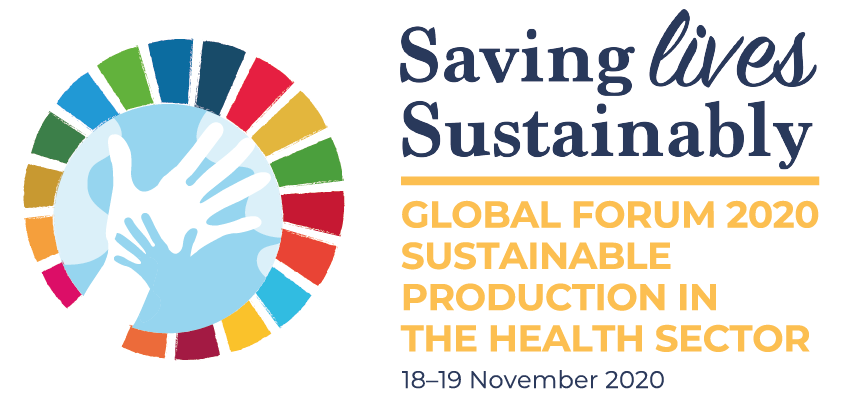
The 3rd Saving Lives Sustainably: Sustainable Production in the Health Sector Global Forum 2020 took place on 18-19 November 2020. The virtual event is a pre-event to the G20 Saudi Arabia 2020 Riyadh Summit, and is organized by the Saudi Food and Drug Authority (SFDA) of the Government of Saudi Arabia, United Nations Development Programme (UNDP), and Health Care Without Harm (HCWH), with the support from the Swedish International Development Cooperation Agency (Sida).
Learn more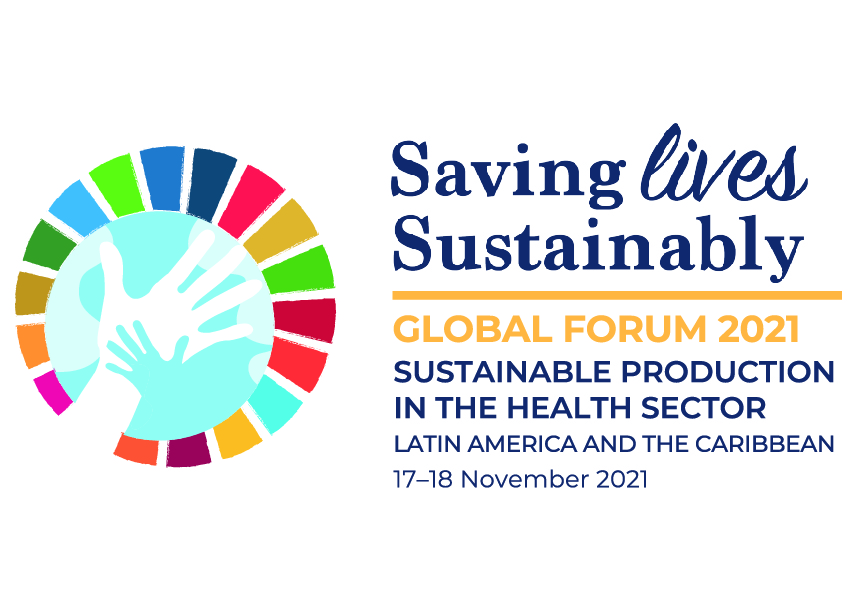
The Global Forum 2021 was held on 17–18 November 2021, under the theme, “Strengthening Sustainability in the Health Sector Supply Chains in the midst of COVID-19.” The two-day event, hosted by Colombia, was co-organised by the United Nations Development Programme (UNDP), Fundación Valle del Lili, Health Care Without Harm, and Secretariat of the UN informal Interagency Task Team on Sustainable Procurement in the Health Sector (SPHS), with the support from the Swedish International Development Cooperation Agency (Sida).
Learn more


















Guidelines for operationalization of the pooled procurement services of SADC’s 16 countries ave been developed.
UNDP Global Fund Health Implementation support Solar for Health (S4H) and Health Procurement Quality Assurance Policy implementation capacity development has been conducted in Argentina, Ukraine, Moldova, Viet Nam leading to joint policy and strategy quick wins.
Health Care Without Harm (HCWH) has produced a set of health sector sustainability case studies from Europe and the United States that shared best practices and lessons learned, which are being replicated by SHiPP countries. For example, Moldova and Ukraine have produced case studies on ethical procurement highlighted in the Global Network on Anti- corruption and Transparency in the health sector first report 2019.
Health Care Without Harm and Arup have estimated the health care sector’s global climate footprint, establishing for the first time the significance of health care’s contribution to the climate emergency.




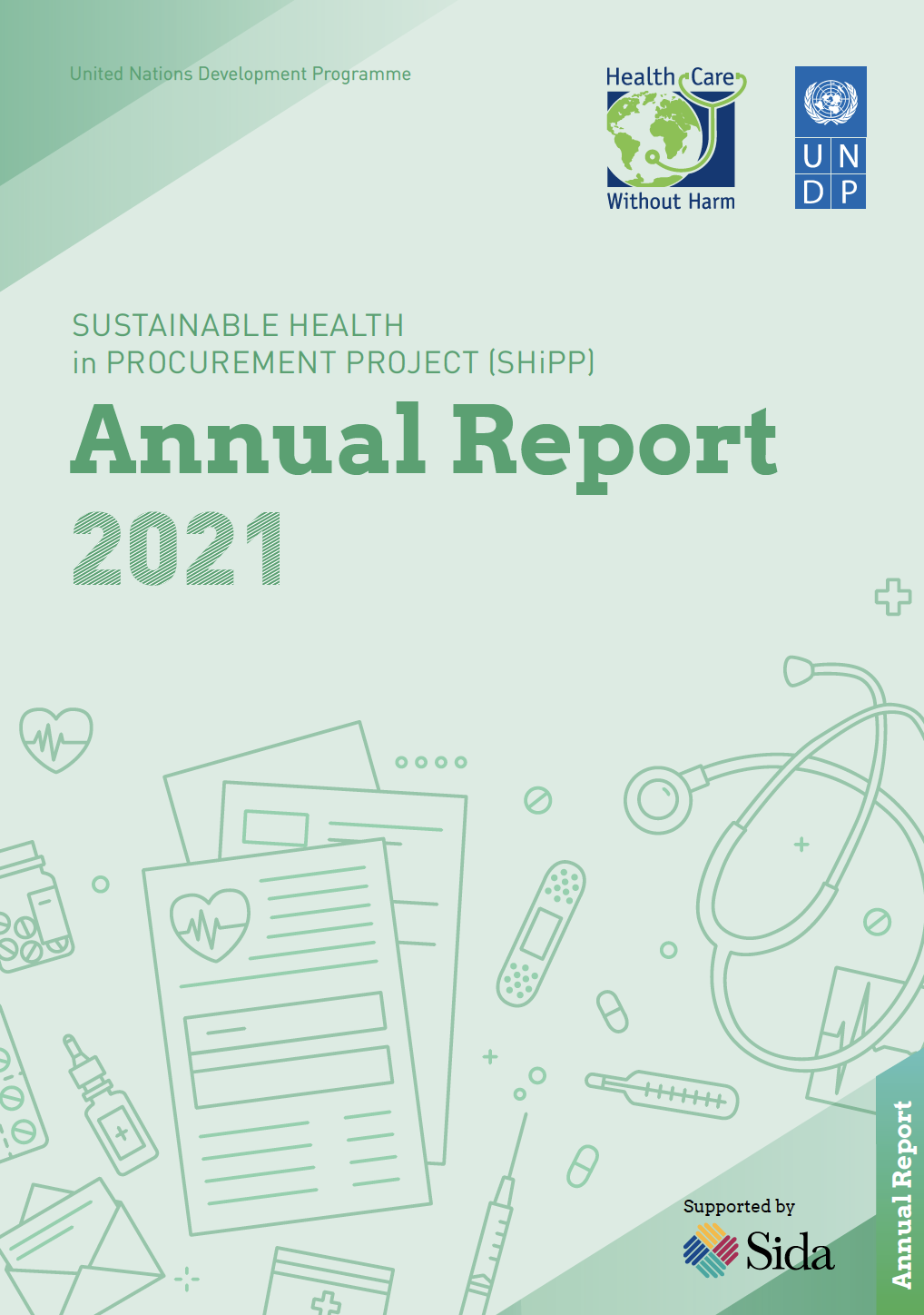

As 2021 marks the fourth year of implementing SHiPP, key results have been solidified leading to fundamental changes at both macro and micro levels of programming. The project provided technical and financial resources towards the development of different policies, strategies, and tools. Chief among them are the completion of the Sustainable Procurement Index for Health (SPIH) and the Fourth Saving Lives Sustainably: Sustainable Production in the Health Sector Global Forum 2021.
Learn more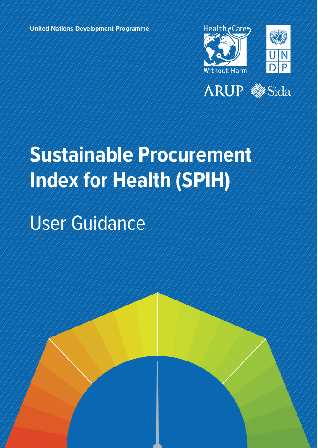

The Sustainable Procurement Index for Health is a globally established, recognized and adaptable measurement tool for policy makers, manufacturers, suppliers, procurers, and healthcare facilities end users. This tool provides an incentive for entities to improve their environmental and social sustainability record. No such measurement tool existed before to monitor (I) Greenhouse gas emissions, (II) resource depletion (water, energy and material consumption), (III) chemical/toxic impact on human health and the environment (IV) human, labour rights and gender equality.
SPIH Tool v2021.8_General.xlsx
SPIH Tool v2021.8_Pharma.xlsx
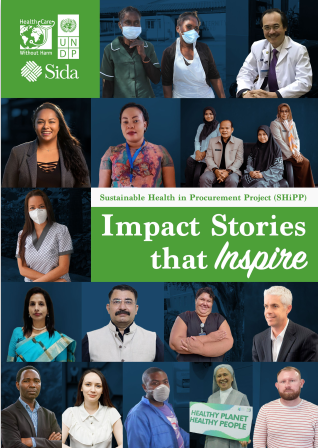

Impact Stories that Inspire amplifies the voices of incredible and extraordinary women and men passionate about introducing health sector practices that improve their working conditions, the lives of their communities and help protect the environment. These local heroes are building more sustainable health care systems that will advance sustainable production and consumption and ultimately contribute to achieving the Sustainable Development Goals
Microsite Report (English) Report (Spanish)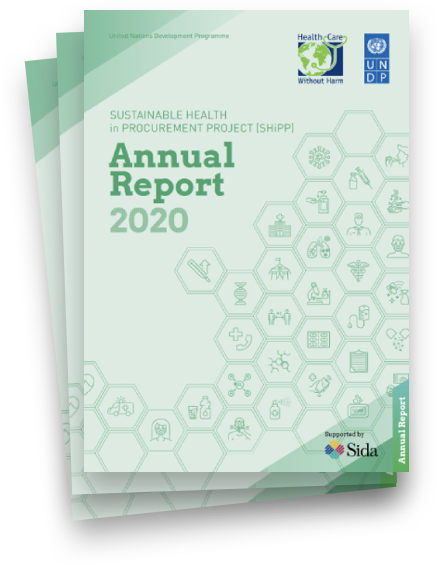

The Sustainable Health in Procurement Project (SHiPP) Annual Report 2020 explains in detail how SHiPP responded to one of the most daunting pandemics in history, the COVID-19 pandemic, by introducing methods to deliver critical health services while producing less waste, using less resources and reducing the negative impacts on environment and human health.
Learn more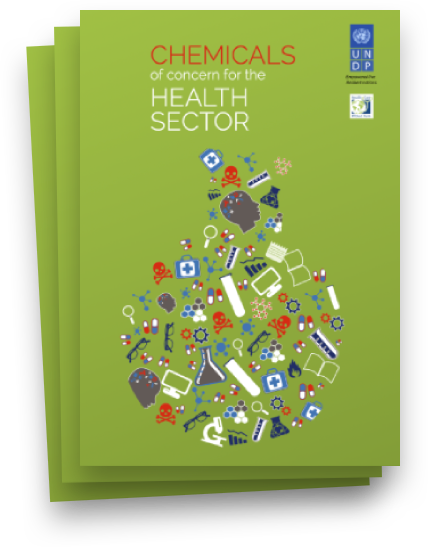

The Chemicals of Concern for the Health Sector was released by UNDP and Health Care Without Harm (HCWH), as part of the Sustainable Health in Procurement Project (SHiPP). The document is based on the report Chemicals of Concern to Health and Environment, published by HCWH and UNDP in 2018. The 2021 report features the list of chemicals used by the health care sector and/or included in the health products and provides case examples that demonstrate how hospitals have successfully substituted chemicals and chemicals in products with more sustainable alternatives. The case studies showcase how health systems are moving away from hazardous products by substituting with safer alternatives.
Learn more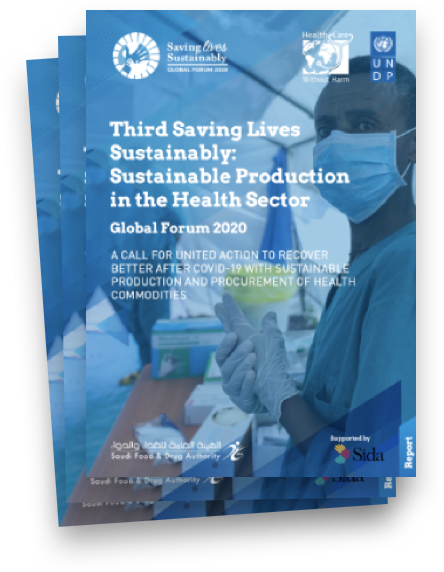

The 3rd Saving Lives Sustainably: Sustainable Production in the Health Sector Global Forum 2020 Report has been launched. The Report provides good practice examples and specific suggestions on sustainable production, procurement and disposal practices in the health sector, and insights into over 300 best practices, case studies, standards and tools. The Report serves as guidance on how to further strengthen sustainability in the global health supply chains. The Global Forum 2020 was held on 18–19 November 2020, as part of International Conferences Program, honouring G20 Saudi Presidency Year 2020.
Learn more

UNDP has officially launched the Sustainable Health Procurement Guidance Note on World Environment Day 2020. One of the key concepts introduced in the guidance note is the need to decouple the health sector from economic activity, which means that there is need to deliver critical health services, grow the economy, while producing less waste, using less resources and reducing the negative impacts on environment and human health. In this regard, the guidance note introduces a variety of health programme approaches, procurement strategies, case studies and best practices to build resilience through the application of different techniques to help transition the market from overconsumption, waste and ecological harm.
Learn more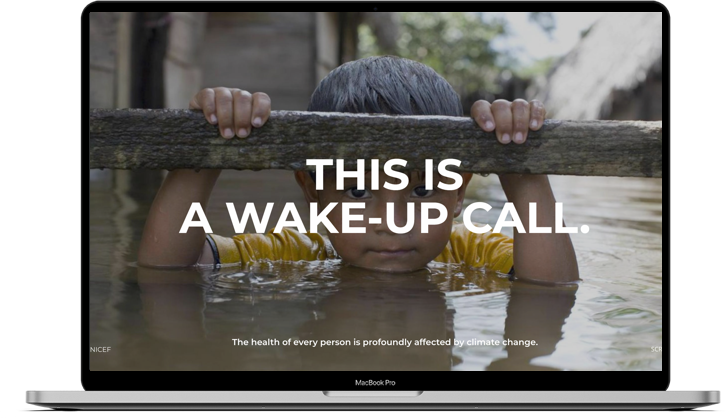


The SPHS Digital Annual Report 2019 profiles the efforts of the SPHS Members (UNDP, UN Environment, UNFPA, UNHCR, UNICEF, UNOPS, WHO, Gavi, The Global Fund, and Unitaid) to implement sustainable and ethical procurement policies that positively impact the global health supply chain and achieve net-zero carbon emissions by 2050.
Learn more

2018 was a wake-up call for the world to understand that it is time to take the effects of the climate change more seriously than ever. The SPHS Members continued to leverage their capacity to change the world by prioritizing human and environmental health. The world’s biggest gathering on climate, the 2018 UN Climate Change Conference in Katowice, showed once again that only global answers can solve global problems. With this in mind, SPHS member agencies continued to work towards achieving the UN Sustainable Development Goals (SDGs) and to leave no one behind.
Learn moreDuring COVID-19 outbreak, different types of Health care waste is generated at all levels of the health system, including biohazard waste materials. These are mainly generated due to the increased procurement of health commodities including PPEs. Unsound management of this waste could cause “knock-on” effects on human health and the environment. Safe handling and final disposal of the waste is therefore a fundamental step in the fight against COVID-19 pandemic and whole product sustainability life cycle. Many Low- and middle-income countries are facing challenges of effective management of healthcare waste. Effective management of biomedical and healthcare waste requires appropriate identification, separation, collection, storage, transportation, treatment and disposal as well as training of health personnel. Due to export restrictions and an overwhelmingly high demand for COVID-19 health products, UNDP’s HIV Health and Development team has prioritized to meet country demands and identify legitimate suppliers for immediate sourcing of essential health products and waste management equipment that is consistent with and meet the quality assurance specifications and adherent to UNDP’s Health Products Quality Assurance Policy. To understand the current practices, UNDP in partnership with Engineers Without Borders (EWB) conducted in 7 countries (Ghana, Jordan, Kyrgyzstan, Panama, Serbia, Sudan and Zimbabwe) a rapid assessment of the prevailing health care waste systems, legal, regulatory and policy frameworks and develop strategies to improve Health Care waste management in consultation with relevant stakeholders.

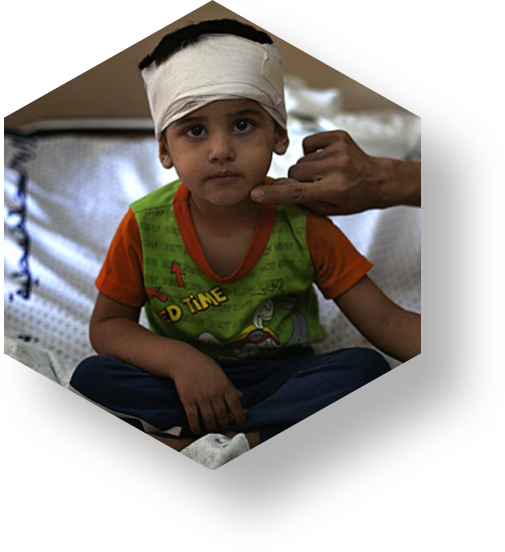

Lorem Ipsum is simply dummy text of the printing and typesetting industry. Lorem Ipsum has been the industry's standard dummy text ever since the 1500s, when an unknown printer took a galley of type and scrambled it to make a type specimen book. It has survived not only five centuries, but also the leap into electronic typesetting, remaining essentially unchanged. It was popularised in the 1960s with the release of Letraset sheets containing Lorem Ipsum passages, and more recently with desktop publishing software like Aldus PageMaker including versions of Lorem Ipsum.
Learn more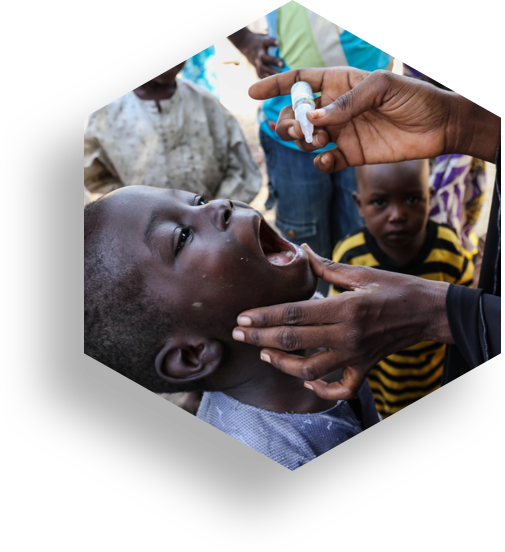

Lorem Ipsum is simply dummy text of the printing and typesetting industry. Lorem Ipsum has been the industry's standard dummy text ever since the 1500s, when an unknown printer took a galley of type and scrambled it to make a type specimen book. It has survived not only five centuries, but also the leap into electronic typesetting, remaining essentially unchanged. It was popularised in the 1960s with the release of Letraset sheets containing Lorem Ipsum passages, and more recently with desktop publishing software like Aldus PageMaker including versions of Lorem Ipsum.
Learn more

Dr Rosemary Kumwenda
UNDP Team Leader for HIV, Health and Development in Eastern Europe & Central Asia and SPHS Coordinator
rosemary.kumwenda@undp.org

Ian Milimo
Project Manager, Sustainable Health in Procurement Project (SHiPP), UNDP
ian.milimo@undp.org

Nevra Gomdeniz
Communications Specialist, UN Interagency Task Team on Sustainable Procurement in the Health Sector (SPHS)
nevra.gomdeniz@undp.org


Laura Stjernstedt-Sinyama
Programme Associate in the Environment and Energy Unit, UNDP Zambia
laura.sinyama@undp.org